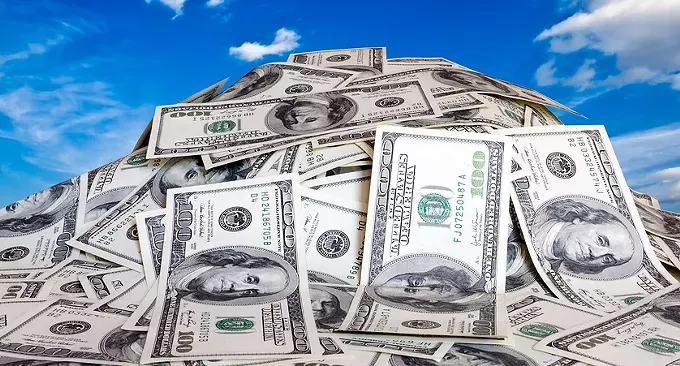Wednesday, August 29, 2018
Winners Take All
He's rich as a lord, and as powerful. All worldly pleasures are his at the snap of a finger. People know they must follow his commands to the letter or suffer the consequences. He strides through the world with the feeling that everything is supposed to go his way. "The earth and the fullness thereof are mine," says this lord among men.
Now and then, he makes a show of caring for others, though compared to his own sense of self worth, he cares little for the welfare of others and even less for people in his employ, whose purpose in life, he is certain, is to make the world a better place for him to live. If someone is injured — especially if he is somehow to blame — he might have a hireling deliver a gold coin as a token of his concern. And he likes to make a public display of bestowing money on people and organizations who, unlike him, devote their lives to making the world a better place for others.
Once, when his carriage careened through the city streets and killed a child . . .
Wait. What? A carriage? A child?
Did you think I was talking about the multibillionaires walking among us who devote their lives to stepping over others to increase their wealth, then give a few million dollars to worthy causes to ease their consciences, to make them feel like they're part of the solution, not the problem? No, I was talking about "Monseigneur," a rich and powerful lord in Dickens' novel, A Tale of Two Cities.
After taking his morning chocolate, Monseigneur ordered his carriage driver to race through the streets with "furious recklessness" and "an inhuman abandonment of consideration not easy to be understood in these days."
The carriage struck a child. Monseigneur tossed the father of the dead child a gold coin while thinking, "It is extraordinary to me . . . that you people cannot take care of yourselves and your children." When a man in the crowd offered wise, world-weary condolences the child's father, Monseigneur said to him, "You are a philosopher, you there," and tossed him a gold coin as well. Then he went on his way.
We can tell ourselves the ways of today's rich-as-lords plutocrats are different from those of the lords who lived before the French Revolution. Dickens, pen dipped in acid, tells his readers living 70 years later that Monseigneur's ways are "not easy to be understood in these days." We can believe the same.
But Anand Giridharadas, whose book WINNERS TAKE ALL: The Elite Charade of Changing the World, was published recently, says things aren't so different today. He writes about the dangers of our growing income inequality and about the plutocrats who make a show of using their foundations and philanthropic gifts to help others while they benefit from the underlying problems they claim they want to fix. Many of today's multi-billionaires aren't aware of their kinship to Dickens' Monseigneur, according to Giridharada. They honestly think they want to make a difference.
Full disclosure: I haven't read WINNERS TAKE ALL. I saw the author interviewed about his book, and I read an excellent review by economist Joseph E. Stiglitz. I'm getting Giridharadas' thesis condensed or second hand. So I'll quote from Stiglitz's review instead of the book itself, since the Nobel Prize winning economist and writer is eminently quotable.
If there is a revolution in our future, and I sincerely hope there isn't, it is today's Monseigneurs who will be the cause.
Now and then, he makes a show of caring for others, though compared to his own sense of self worth, he cares little for the welfare of others and even less for people in his employ, whose purpose in life, he is certain, is to make the world a better place for him to live. If someone is injured — especially if he is somehow to blame — he might have a hireling deliver a gold coin as a token of his concern. And he likes to make a public display of bestowing money on people and organizations who, unlike him, devote their lives to making the world a better place for others.
Once, when his carriage careened through the city streets and killed a child . . .
Wait. What? A carriage? A child?
Did you think I was talking about the multibillionaires walking among us who devote their lives to stepping over others to increase their wealth, then give a few million dollars to worthy causes to ease their consciences, to make them feel like they're part of the solution, not the problem? No, I was talking about "Monseigneur," a rich and powerful lord in Dickens' novel, A Tale of Two Cities.
After taking his morning chocolate, Monseigneur ordered his carriage driver to race through the streets with "furious recklessness" and "an inhuman abandonment of consideration not easy to be understood in these days."
The carriage struck a child. Monseigneur tossed the father of the dead child a gold coin while thinking, "It is extraordinary to me . . . that you people cannot take care of yourselves and your children." When a man in the crowd offered wise, world-weary condolences the child's father, Monseigneur said to him, "You are a philosopher, you there," and tossed him a gold coin as well. Then he went on his way.
We can tell ourselves the ways of today's rich-as-lords plutocrats are different from those of the lords who lived before the French Revolution. Dickens, pen dipped in acid, tells his readers living 70 years later that Monseigneur's ways are "not easy to be understood in these days." We can believe the same.
But Anand Giridharadas, whose book WINNERS TAKE ALL: The Elite Charade of Changing the World, was published recently, says things aren't so different today. He writes about the dangers of our growing income inequality and about the plutocrats who make a show of using their foundations and philanthropic gifts to help others while they benefit from the underlying problems they claim they want to fix. Many of today's multi-billionaires aren't aware of their kinship to Dickens' Monseigneur, according to Giridharada. They honestly think they want to make a difference.
Full disclosure: I haven't read WINNERS TAKE ALL. I saw the author interviewed about his book, and I read an excellent review by economist Joseph E. Stiglitz. I'm getting Giridharadas' thesis condensed or second hand. So I'll quote from Stiglitz's review instead of the book itself, since the Nobel Prize winning economist and writer is eminently quotable.
Like the dieter who would rather do anything to lose weight than actually eat less, this business elite would save the world through social impact investing, entrepreneurship, sustainable capitalism, philanthro-capitalism, artificial intelligence, market-driven solutions. They would fund a million of these buzzwordy programs rather than fundamentally question the rules of the game — or even alter their own behavior to reduce the harm of the existing distorted, inefficient and unfair rules. Doing the right thing — and moving away from their win-win mentality — would involve real sacrifice; instead, it’s easier to focus on their pet projects and initiatives. As Giridharadas puts it, people wanted to do “virtuous side projects instead of doing their day jobs more honorably.”The passage in the review I love — the one that made me decide to write this post — is where Stiglitz lists the things today's plutocrats would be doing if they were serious about the causes they make a show of supporting.
In order to really have an economy with the greatest opportunity for all, the kind of economy they seem to champion, the MarketWorlders would have to pay high levels of corporate and personal income tax, offer decent wages to their workers, allow unions, fund public schools (instead of pet charter projects) and support some form of single payer health care and campaign finance reform. One simply can’t arrive at a more economically equal reality when the rungs of the ladder are so far apart.Whenever we find ourselves in awe of the hundreds of millions of dollars the richest of the rich give away, we need to remember what a small fraction of their wealth it is. I'm guessing I give away a larger portion of my "fortune" than they do, far more if you factor in the amount of money I have left after normal living expenses. When they give away $500 million and have $13.5 billion left, it's not really a big deal. We also need to remember how much damage many of them have done, and continue to do, in the process of amassing and holding onto their obscene levels of wealth.
If there is a revolution in our future, and I sincerely hope there isn't, it is today's Monseigneurs who will be the cause.
Tags: WINNERS TAKE ALL: The Elite Charade of Changing the World , Anand Giridharadas , Income inequality , A Tale of Two Cities. , Image













